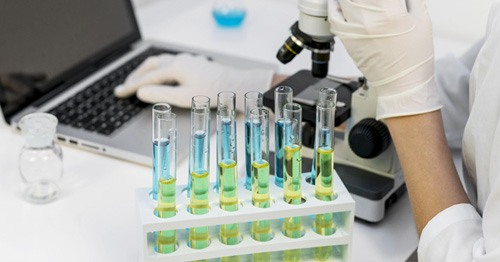Glutathione, a tripeptide composed of cysteine, glycine and glutamate, is the most abundant antioxidant that prevents oxidative damage caused by reactive oxygen species (ROS) in cells. In most cell types, to maintain a high concentration (millimoles) of reduced glutathione (GSH), will highlight the important role in the process of control of a variety of biological and multifunctional role (e.g., exogenous and endogenous compounds of detoxification, protein folding, regeneration of vitamins C and E, antiviral effect, mitochondrial function, regulate cell proliferation, apoptosis, and immune response).
Given the high incidence of serious illness and death caused by novel Coronavirus infection (COVID-19), there is an urgent need to find effective drugs to treat and prevent illness. Although there has been much literature on the beneficial effects of glutathione on human health, including antiviral activity, the key role of this powerful antioxidant in human physiology and pathology, as well as its widespread clinical application, has been underestimated.
What is the link between glutathione deficiency and viral infection?
To obtain scientific information on the link between glutathione deficiency and viral infection, the researchers found and analyzed more than 100 original literature and reviews. A large number of studies have reported that endogenous glutathione deficiency is due to reduced biosynthesis and/or increased consumption, and its mechanism involved in oxidative stress and inflammation is an important factor in the pathogenesis of a variety of human diseases. The researchers also summarized the most prescriptive evidence in the biomedical literature that glutathione deficiency is the most likely explanation for the higher risk of severe illness and death in certain populations in the epidemiological findings of COVID-19 infection, and that the recovery of this deficiency can significantly improve the clinical presentation and prognosis of such patients.
Further, case studies were performed to assess the efficacy of oral high doses of glutathione and/or intravenous glutathione in the treatment of dyspnea secondary to COVID-19 pneumonia.
One study looked at two patients in New York City with a history of Lyme disease and tick-borne co-infection, who developed cough and dyspnea, exhibited radiological findings consistent with COVID-19, and tested positive for COVID-19. In the trial, both patients were given 2G oral or intravenous glutathione and had improved dyspnea within an hour of use. Repeated administration of 2000mg oral or intravenous glutathione was effective in further relieving respiratory symptoms.
In the other study, blood samples were collected from four patients diagnosed with COVID-19 in the control group, and plasma total ROS and GSH levels were measured immediately after the blood was drawn. The observations showed that patients with moderate to severe COVID-19 infection had lower glutathione levels, higher ROS levels and a higher ROS/GSH ratio than patients with mild coVID-19 infection. According to the researchers, this suggests that novel Coronavirus cannot actively replicate with high glutathione levels, and that less severe clinical symptoms indicate a lower viral load. This makes glutathione a promising drug for the treatment of a variety of viral infections.
Therefore, it was pointed out that oral n-acetylcysteine could be used as a preventive measure against viral infection, and intravenous glutathione precursor or reduced glutathione (reduced glutathione has high bioavailability) in severe patients might be an effective choice against novel Coronavirus.
Oral and intravenous glutathione and glutathione precursors (N-acetylcysteine, -lipoic acid) may provide a novel approach for blocking nuclear transcription factors and addressing 'cytokine storm syndrome' and respiratory distress in patients with COVID-19 pneumonia, the researchers suggest.
Of course, clinical trials are still needed to objectively evaluate the efficacy of N-acetylcysteine and reduced glutathione in the treatment and prevention of this novel viral infection.


